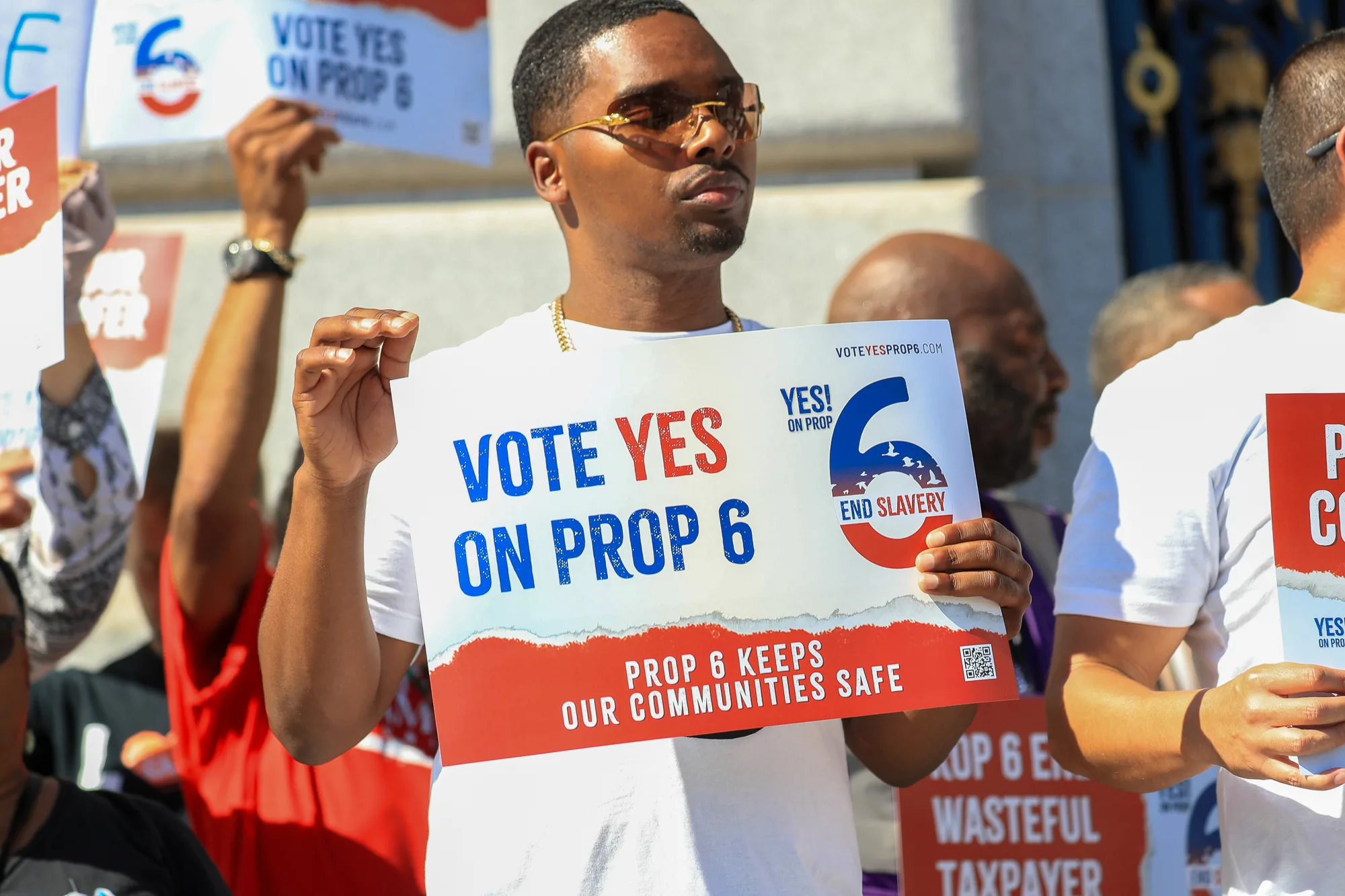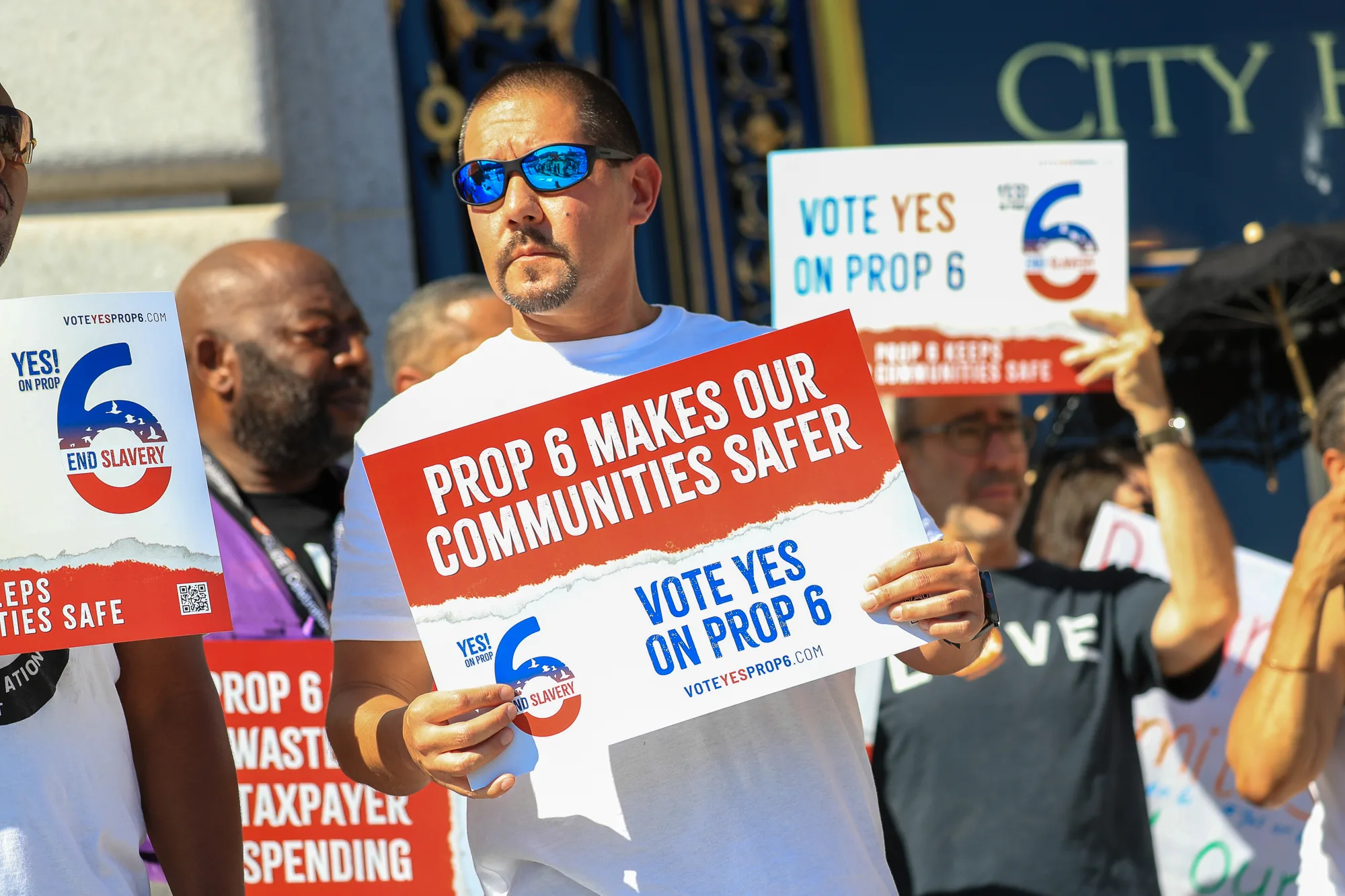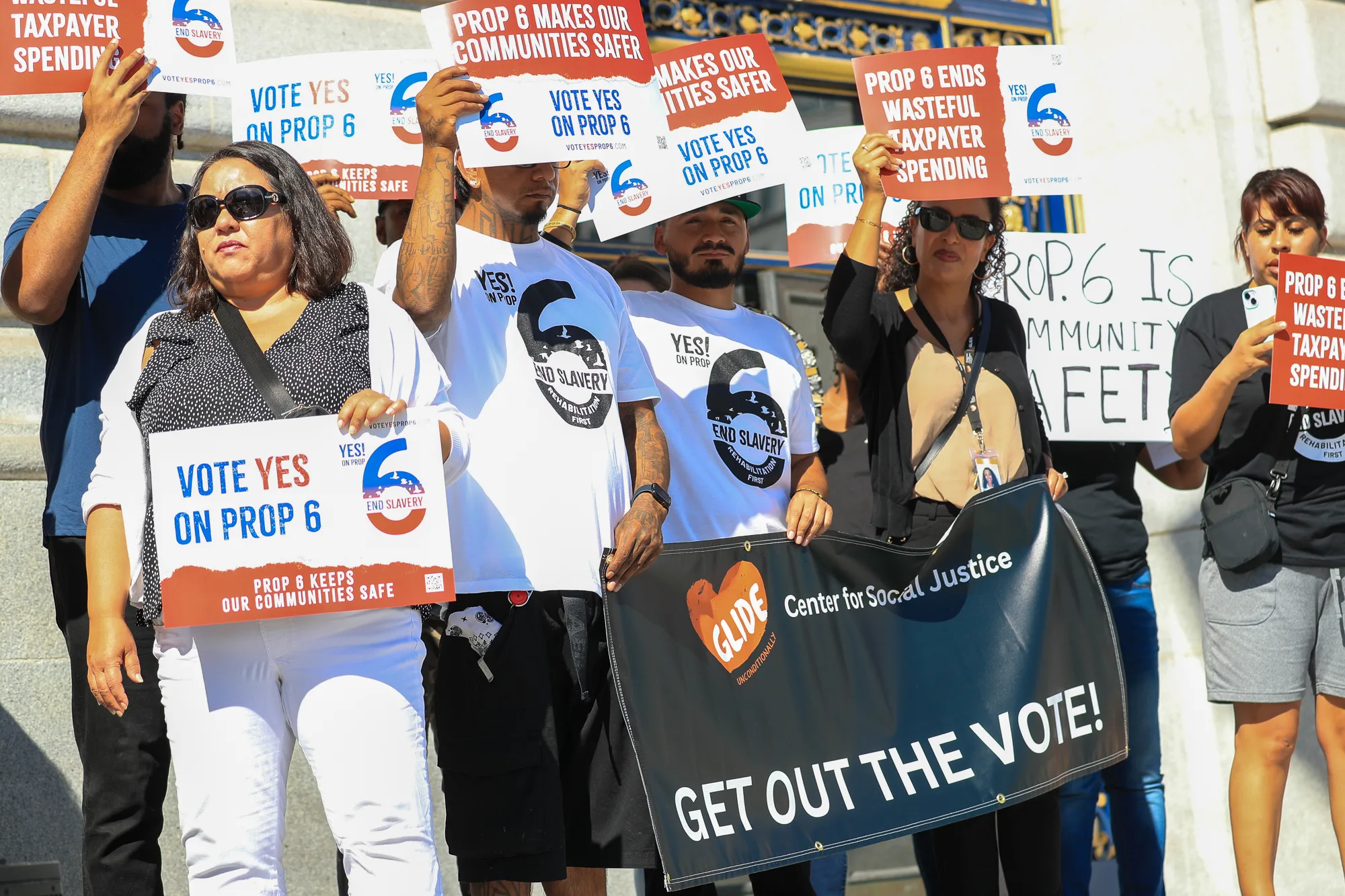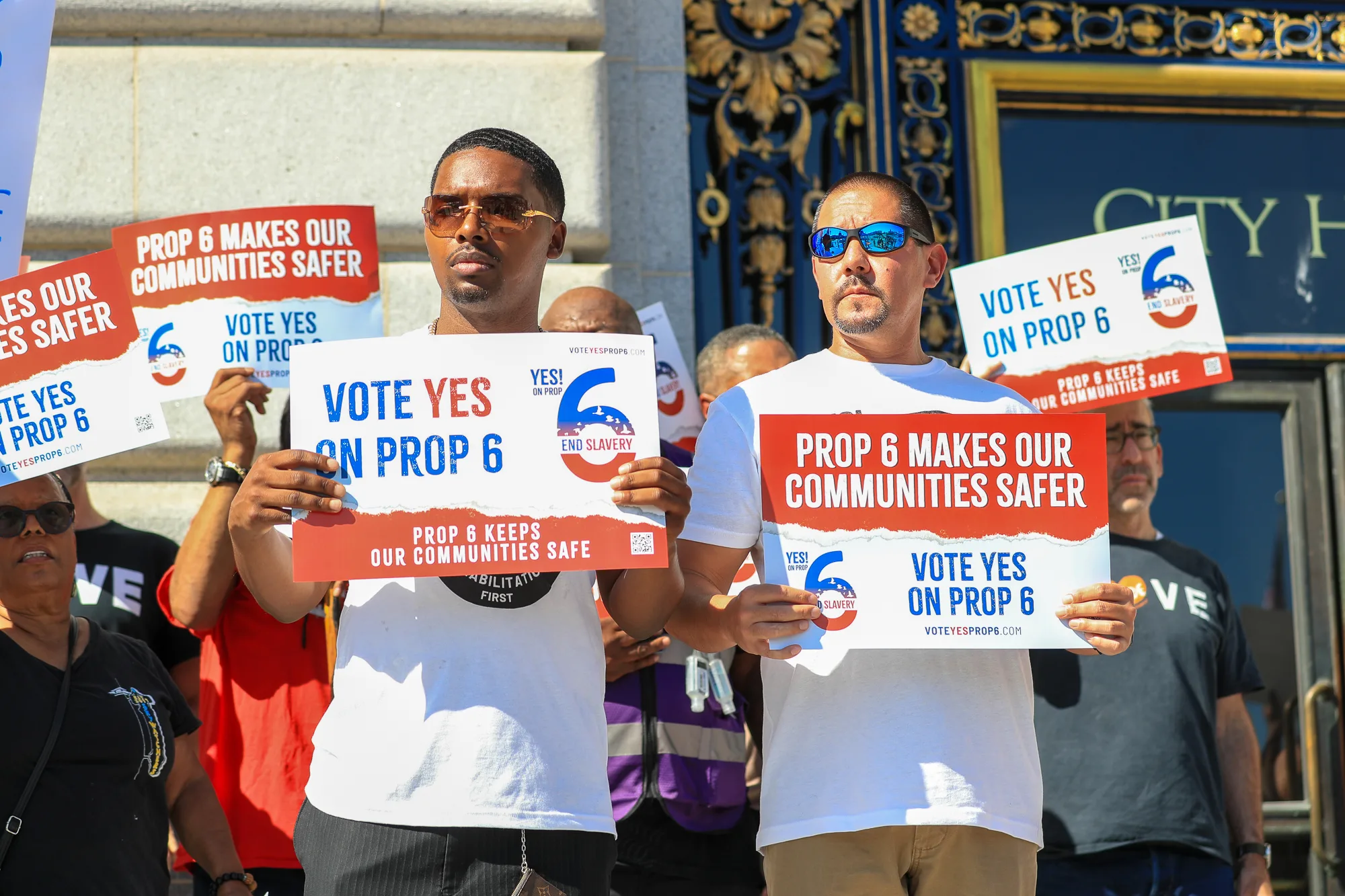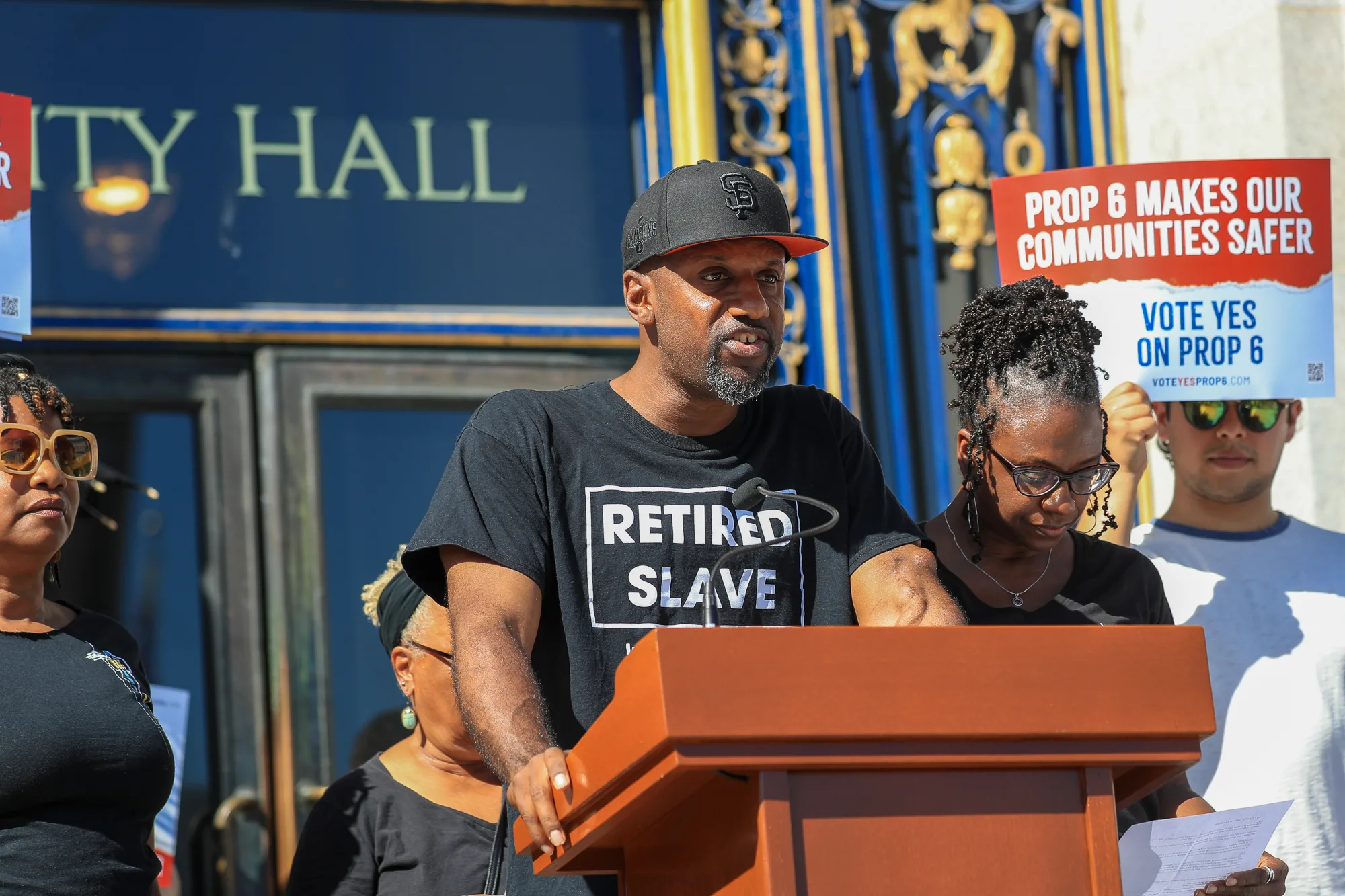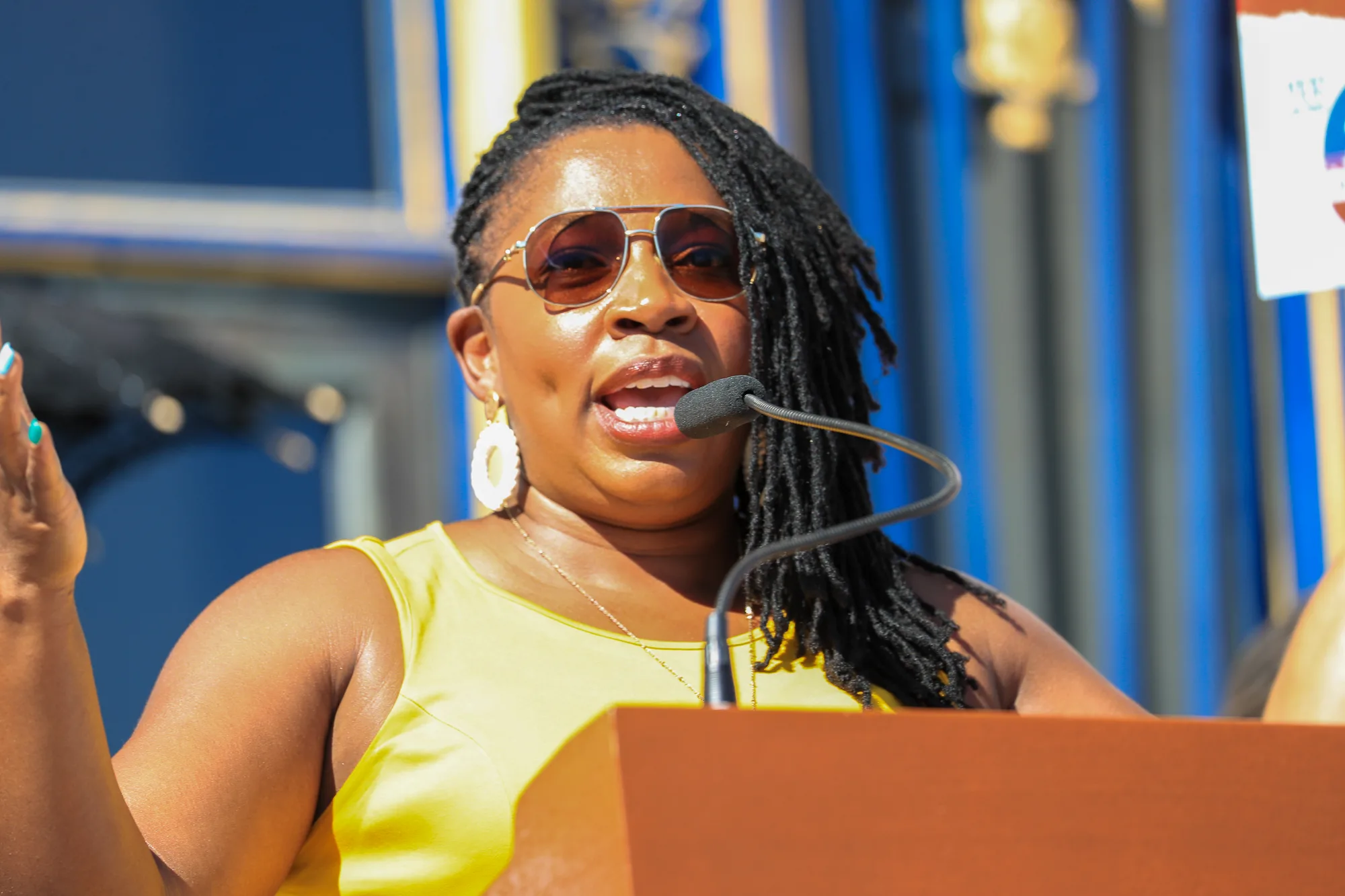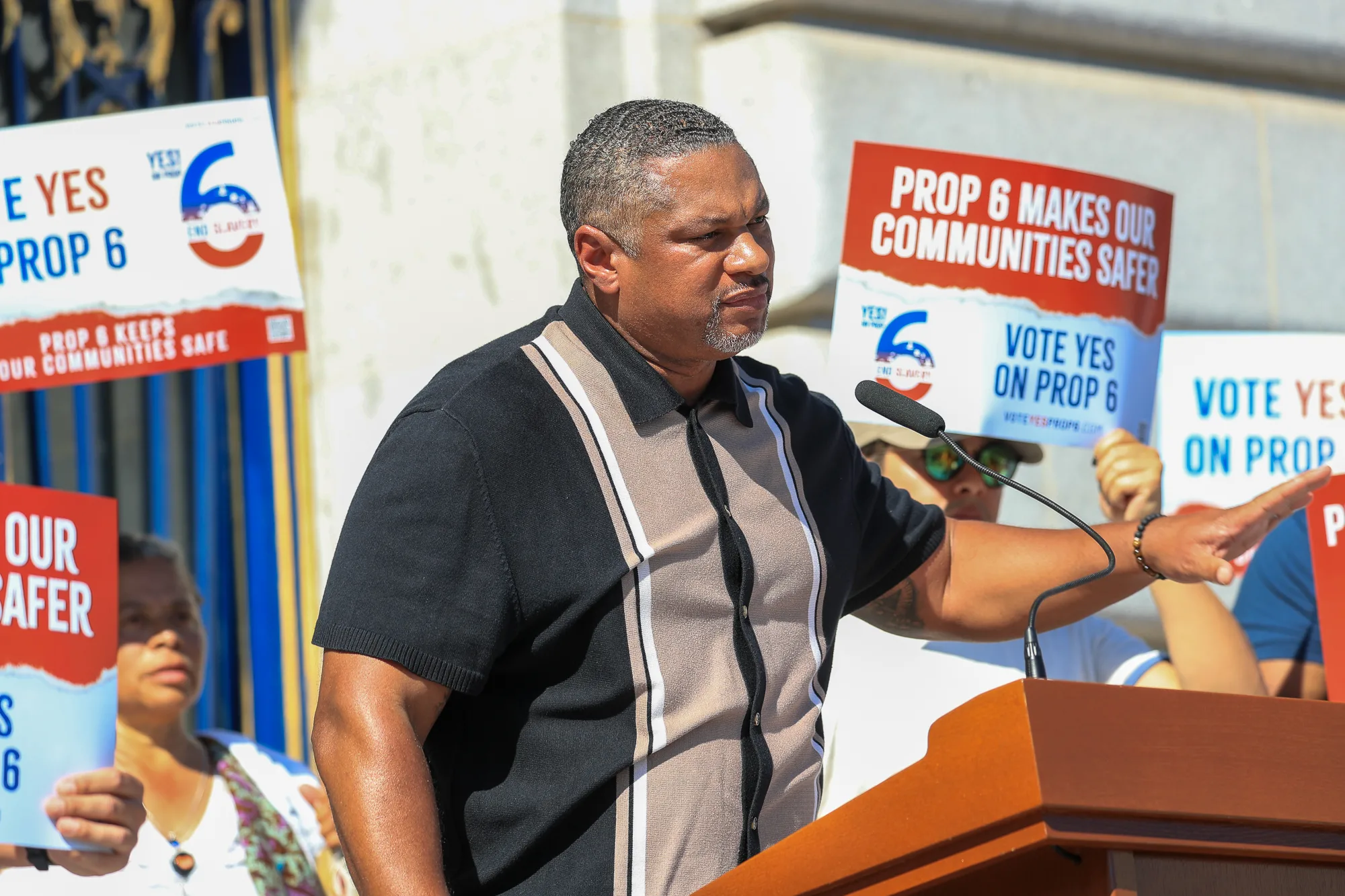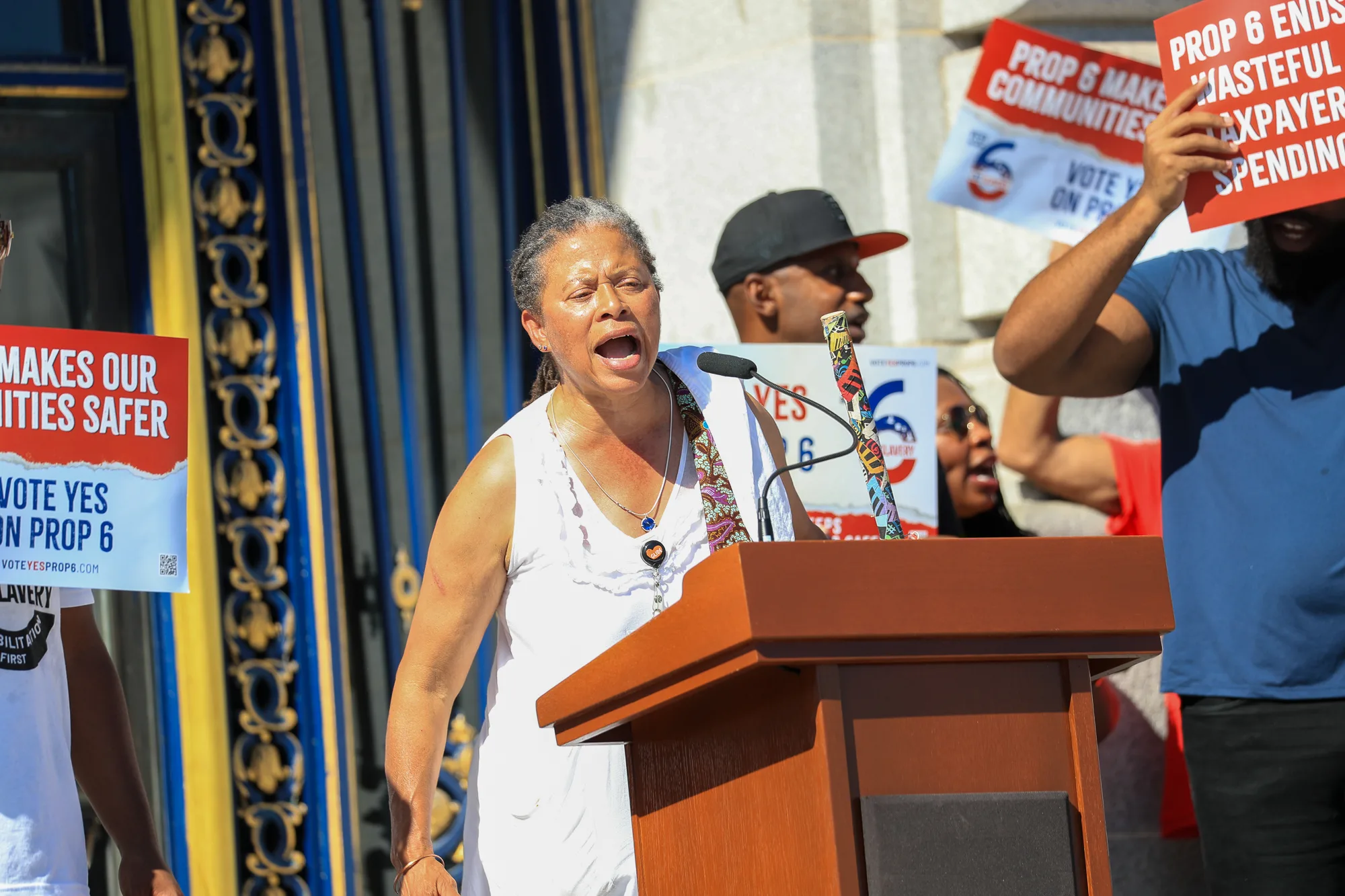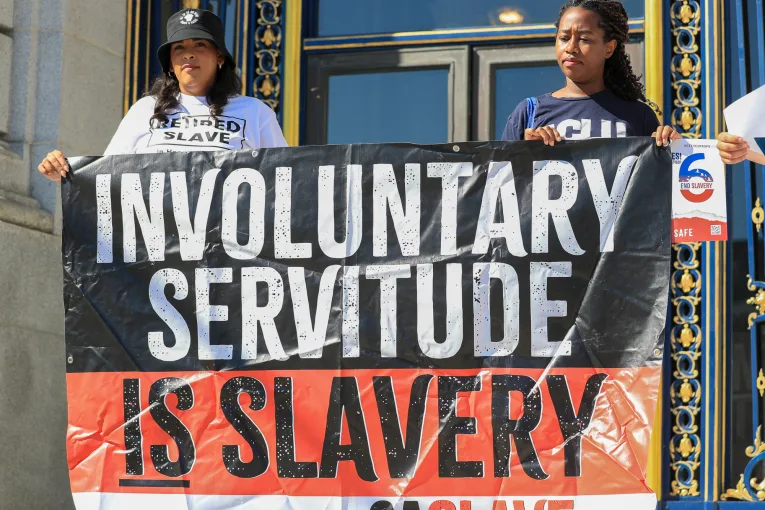
San Francisco, CA – Informing the public that “Our California constitution currently reads involuntary servitude is prohibited except to punish crime. What? That’s still in there. We live in America.” Leaders from the San Francisco community gathered Wednesday on the steps of City Hall to call for an end to slavery.
Few realize that the 13th Amendment to the US Constitution did not completely end slavery and involuntary servitude—it left open the exception for those convicted of a criminal offense.
This led to what Douglas Blackmon, in his Pulitzer Prize winning book, Slavery by Another Name, called the convict labor system, which looked a lot like chattel slavery.
Because of laws like this, supporters of Prop 6 charge that prison officials have prioritized work over rehabilitation programs.
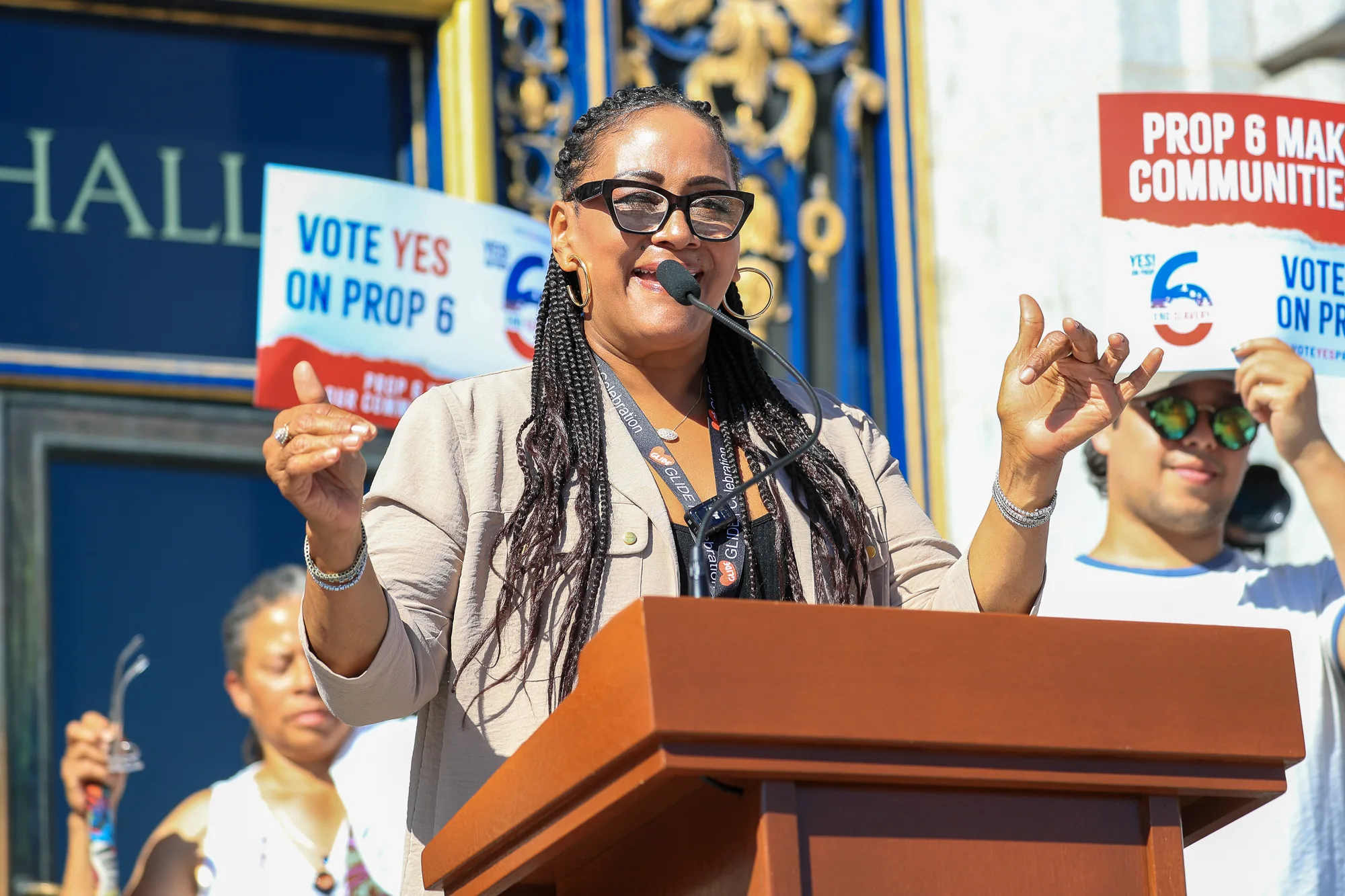
“California is one of the most progressive states in the nation and why are we behind? California should be leading the nation on this period,” said President and CEO of the GLIDE Foundation, Gina Fromer. And yet she noted that right now Prop 6 is even in the polls, even though in 2022, “voters in Alabama, what Tennessee, Oregon and Vermont voted Remove slavery involuntary servitude from their state’s constitution.”
Carmen-Nicole Cox, Director of Government Affairs for ACLU California Action explained, “Prop 6 is very simple. It changes just six words in the California Constitution that have been there since 1850. What Prop 6 says is everyone, regardless of their circumstances of confinement, is human proposition six says, we absolutely have got to amend our California constitution to remove any opportunity for any government entity to force labor out of anyone.”
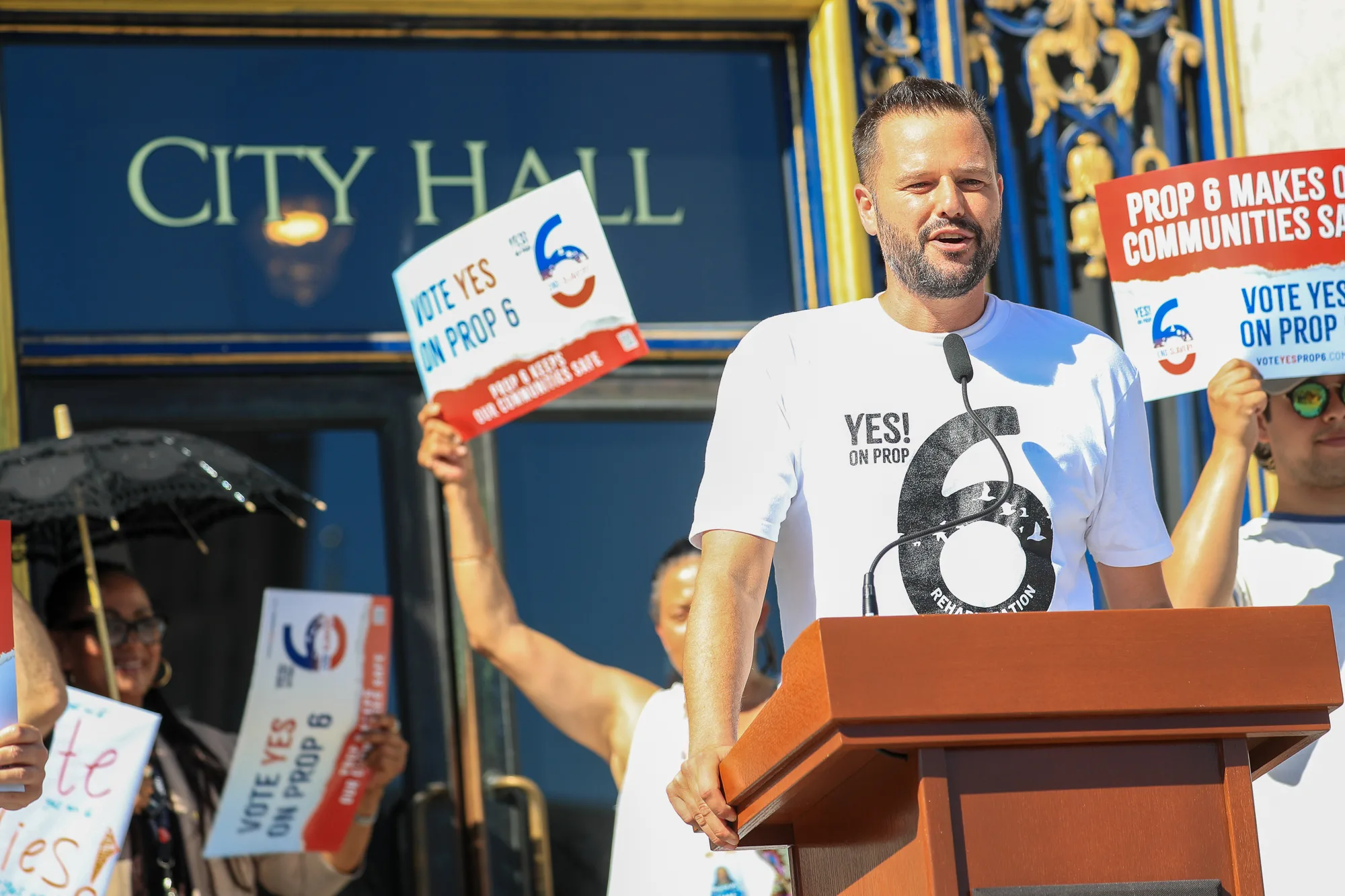
Assembymember Matt Haney, who represents San Francisco said, “Here we are on October 2. What must be the hottest October 2 in the history of our country, the year of our Lord, 2024, and we still have slavery in the California Constitution.”
He added, “Shame, shame, shame. And even back then, over 150 years ago, they knew that they needed to call it by something else in order to make it more acceptable. So don’t be fooled When you go to the ballot and you see involuntary servitude. Involuntary servitude is slavery.”
He said, ‘It’s the exact same thing. Forcing someone to work against their will is slavery. And it is in our Constitution. It is explicitly allowed and we need to remove it. We are right now one of just 16 states that still allows for slavery under the law, protected by the Constitution.”
Kim Tavaglione, Executive Director of the San Francisco Labor Council said, “Prop 6 is a common sense piece of legislation that we need to pass immediately.”
She said, “Manufacturers, corporate giants have long exploited the prison population and worked to undermine working families throughout California. That needs to end in November. The exploitation of these workers really brings down every working family in California. It undermines our standards. It undermines our family’s ability to care for each other.
“No one should be forced to produce furniture and different manufacturing cheap goods while corporate giants and CEOs make millions and the prison population makes cents.”
She added, “It is infinitely not fair. And this does equate to slavery. It is slavery forcing people to do these jobs without a fair wage, without benefits.”
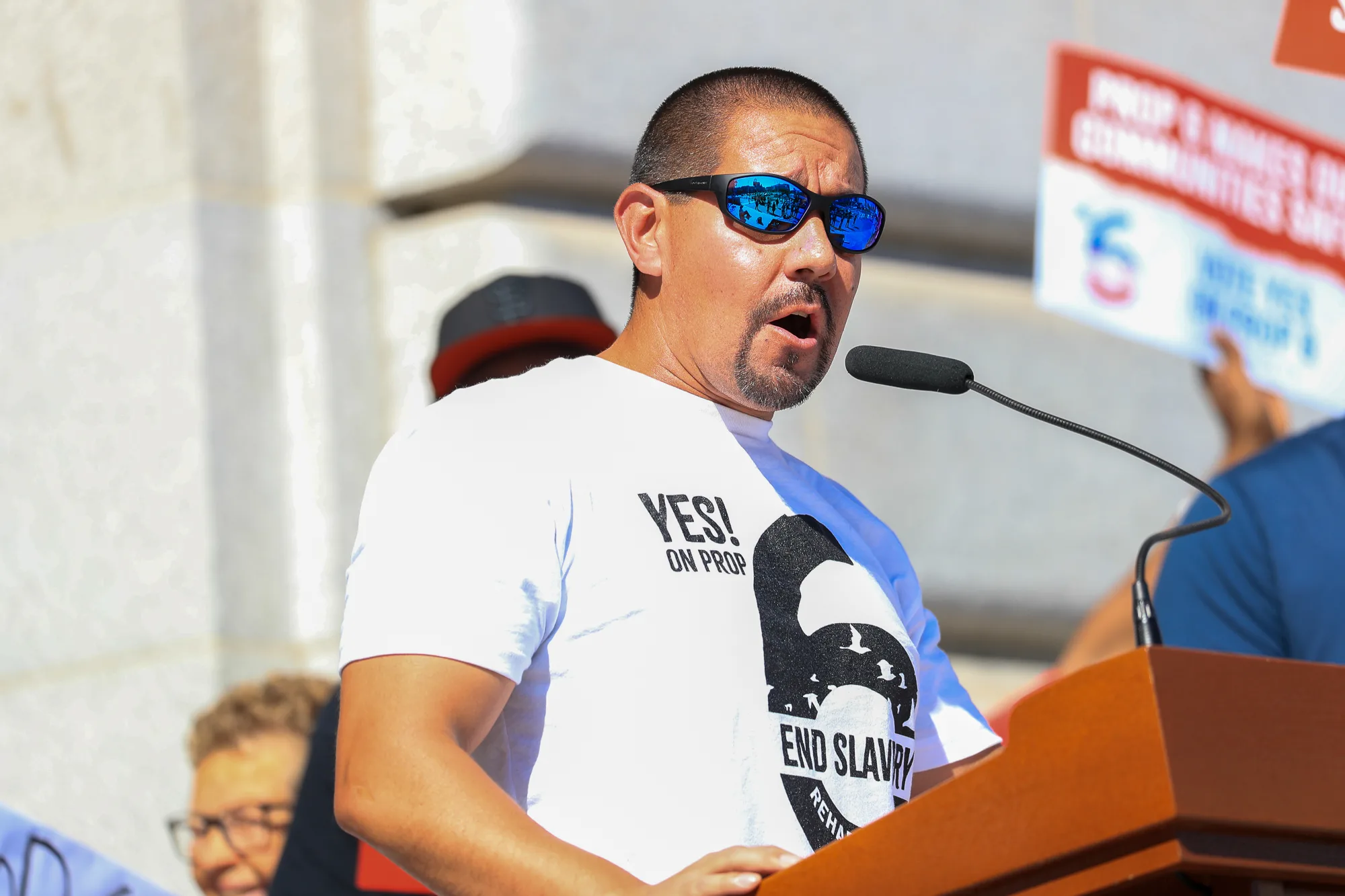
J Vasquez Policy & Legal Services Manager with Communities United for Restorative Youth Justice (CURYJ) asked, “Why are we still talking about slavery in California in 2024.”
He added, “California’s forced prison labor scheme is rooted in white supremacy and the exploitation of indigenous and black free labor. How do I know this? In 1849, an all white male legislature deviously crafted slavery into the state constitution. 16 years before the 13th Amendment, the governor at the time, Peter Burnett, a slave holder decried, and I quote, the colored race is inferior to the white.”
Vasquez continued, “Two years later in 1851, the same legislature awarded state Senator James Estel, also a slave holder with a 10 year prison contract, which became San Quentin, not too far from here, and helped him develop a convict leasing system with the unrestricted use of convict labor back.”
He argued, “forced prison labor undermines rehabilitation. The evidence is overwhelmingly clear. When people participate in rehabilitation education, child training, drug treatment, mental health treatment, they are more likely to succeed in the free community.”
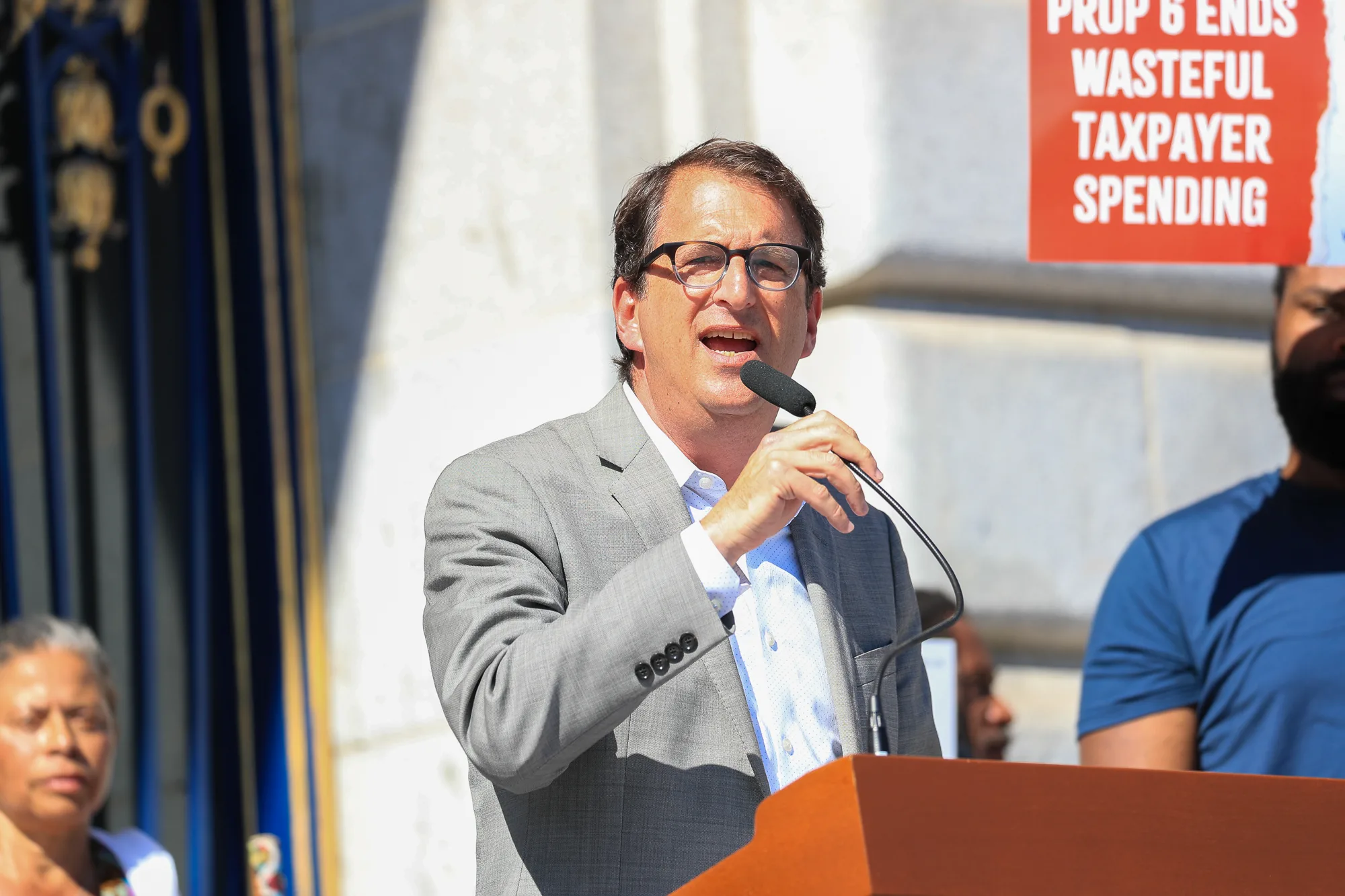
San Francisco supervisor Dean Preston said, “. It’s an honor to be here with all the folks who are fighting for yes on six. And as the speakers before me have said there’s something fundamentally wrong that this is still happening in this state in 2024.”
He explained, “Now this campaign, this campaign to abolish forced labor and slavery in our prison system in California, is going to do two things – and they’re both important.”
He said, “The first thing is it’s going to open the eyes of the California people who do not know someone inside the system, to the fact that in 2024, every day there are thousands of people in this state being forced to work and not just being forced to work, but being penalized and punished w it comes time for parole decisions and other decisions about their future, they’re going to be punished if they stand up to be forced to work.”
He added, “So we are through this campaign opening the eyes of the California people of every voter to the state of what is happening inside the prisons in California every day.”
He said, “And then the second thing we’re going to do is what everyone’s talked about. We’re going to end it. We’re going to vote yes on six so that after November, nobody in this state, nobody in this state is forced to work, to forced to perform certain labor. And nobody is subjected to modern day slavery anywhere in California with no exceptions inside the prison system.”
He concluded, “I’m going to echo the sadness I feel that we have to be here in 2024 closing this horrific loophole.”
